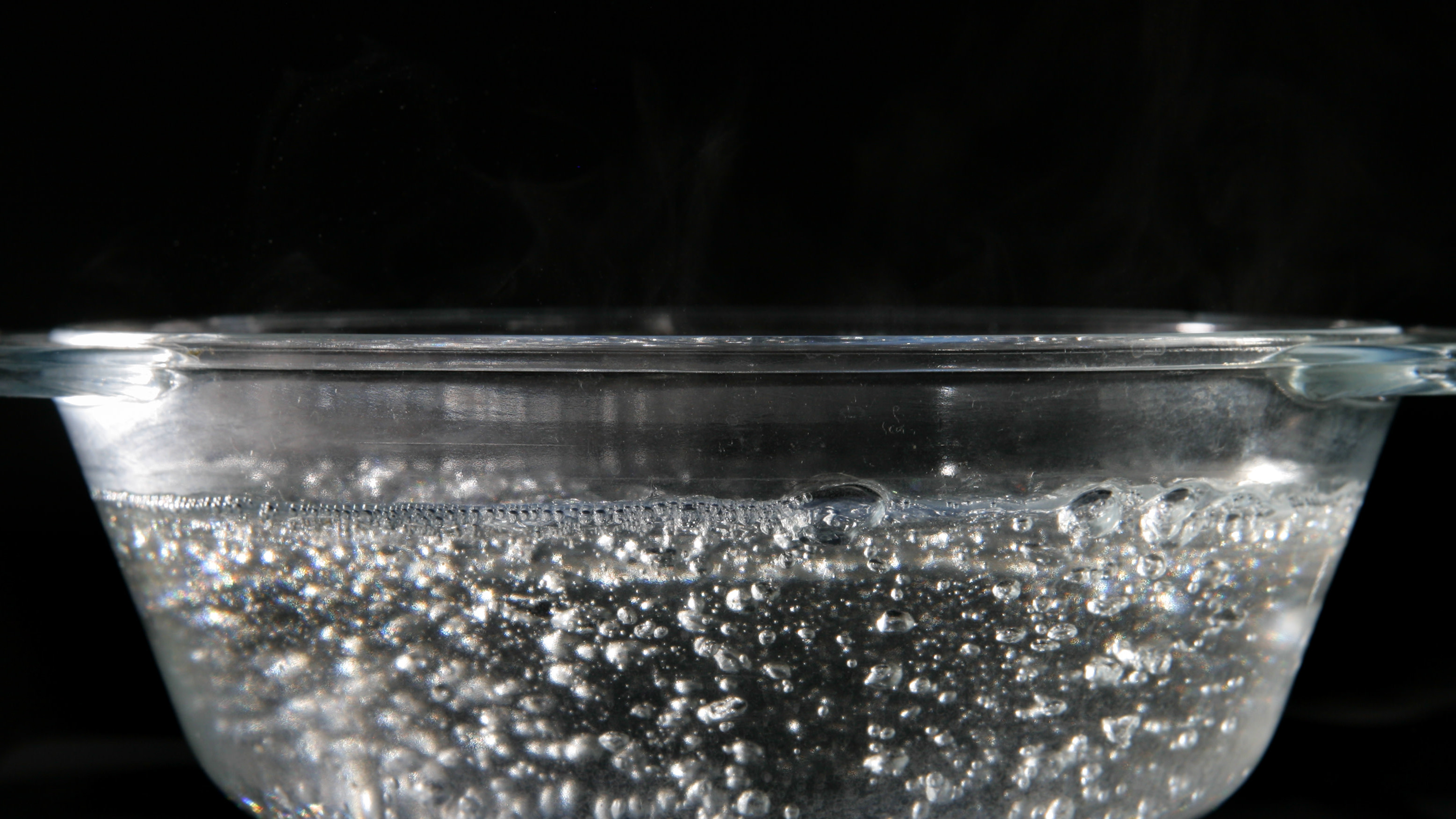Scientists Make Sound So Loud It Boils Water
If you haven't yet received the latest issue of the journal Physical Review Fluids, spoiler alert, it's a doozy. In this edition of America's favorite fluid dynamics publication, Stanford scientists published the results of an experiment they conducted using X-ray free-electron laser pulses in 14 to 30 μm diameter liquid water microjets—that instantly boil water. I don't understand one percent of how the researchers did this, but I am in awe of sound so loud it boils water.
Stanford attempts to put this in layman's terms (thank goodness): X-ray lasers hit the water, producing a shockwave. The shockwave travels through the liquid creating copies of itself, a "shockwave train," that switches between high and low pressure. "Once the intensity of underwater sound crosses a certain threshold, the water breaks apart into small vapor-filled bubbles that immediately collapse." The pressure created by the shockwaves was just below this breaking point, suggesting it was at the limit of how loud sound can get underwater. To further contextualize, the sound produced is equivalent to "directing the electrical power of an entire city onto a single square meter," and is greater than that of a rocket launch. So freaking cool!
We already know some amazing things that sound waves can do in liquids, including aging whiskey. As previously reported, a Washington D.C. mixologist has successfully sped up whiskey aging—turning a 9-year-aged whiskey into one that tastes like it's been aged 20 years—by blasting it with sound waves for "about as long as you'd watch a TV show." Again, no scientist here, but could we use these ultra-intense x-rays to age whiskey instantly? Then again, we definitely don't want to vaporize the whiskey. Proceed with caution, science.
